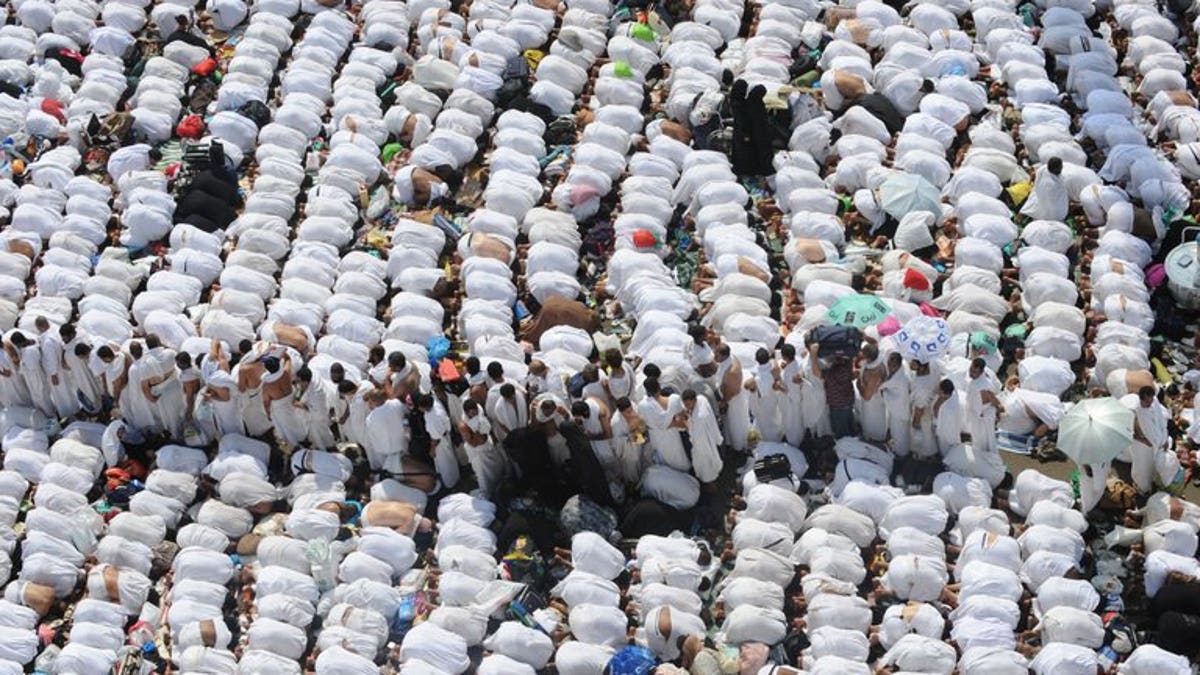
Hajj pilgrims pray outside the Namera mosque on the outskirts of the holy city of Mecca, on October 25, 2012. Saudi Arabia has urged elderly and chronically ill Muslims not to perform the hajj pilgrimage, to curb the spread of the MERS coronavirus which has killed 38 in the kingdom. (AFP/File)
RIYADH (AFP) – Saudi Arabia on Saturday urged elderly and chronically ill Muslims not to perform the hajj pilgrimage, to curb the spread of the MERS coronavirus which has killed 38 in the kingdom.
The health ministry issued a set of conditions for people wanting to perform the annual hajj, which this year falls in October, or the year-round omra or minor pilgrimage.
They recommend postponing the omra and hajj this year "for the elderly and those suffering chronic illnesses, like heart, kidney, respiratory diseases, and diabetes".
People with immunity deficiency, as well as children and pregnant women, are also listed, according to a ministry statement posted on its website.
The statement did not set an age limit, and it was not clear if the recommendation implies that no visas will be issued for such pilgrims.
The ministry said that the conditions were part of "preventive measures special to the MERS coronavirus".
The kingdom is battling to contain the spread of the SARS-like coronavirus, which has infected 65 people in Saudi Arabia and led to 38 fatalities.
Those figures represent the majority of people affected worldwide -- 81 cases of infection and 45 deaths -- according to the World Health Organisation.
The Saudi decision comes after the WHO convened emergency talks on MERS last week, with concerns expressed about its potential impact on the hajj when millions of Muslims head to and from Saudi Arabia.
Experts are struggling to understand MERS, or Middle East Respiratory Syndrome.
The WHO has not recommended any MERS-related travel restrictions, but says countries should monitor unusual respiratory infection patterns.
The first recorded MERS death was in June last year in Saudi Arabia.
Like SARS, MERS appears to cause a lung infection, with patients suffering from fever, coughing and breathing difficulties.
But it differs in that it also causes rapid kidney failure.
